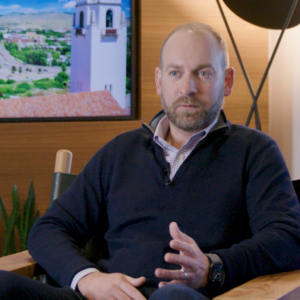This is part two in a two-part series. If you haven’t read part 1, it can be found here.
In this changing landscape, a new business model has arisen: the independent alternatives platform. Like the big investment bank platforms, these offer a roster of third-party private equity funds and hedge funds to investors that join their client base. Unlike the banks, they do not have investment advisory businesses of their own. By subscribing to a platform — sometimes by paying a membership fee and a management fee on assets — investors get easy access to a ready-made lineup of managers they would otherwise have to find on their own and can outsource cumbersome subscription paperwork and capital calls to electronic processes. Platforms can be true one-stop shops.
I call this business model “Retail Alts 1.0.” Selling access scales well and is profitable for those involved. But there are a few reasons to worry that these platforms will fall short of providing the outcomes that investors are hoping for.
First, manager selection of alternatives really matters. Unlike in public equities, where the difference between top- and bottom-quartile managers in any one-year averages about 2.5%, in private equities that spread approaches 20%. Picking the right or wrong manager matters hugely. Most of these platforms have robust due diligence processes in place, which they’ve typically outsourced to third-party vendors. And there’s the rub.
Who is responsible for conducting due diligence?
Research on due diligence should give investors pause. Looking at 13 years’ worth of manager research recommendations from several leading investment consultants, an article in The Journal of Finance in 2015 compared the performance of the approved managers with those not recommended, and the results did not flatter consultants. Recommended managers subsequently underperformed their unendorsed counterparts by 1% per annum, the study found. Notably, among the approved managers, consultants were even worse at conviction-based prioritization. Top picks returned an average of 6.8%, whereas lower-rated managers generated 8.6% a year. I suspect clients think their consultant fees buy more skills than that.
Other work backs this up. A paper published in the journal European Financial Management in 2016 compared the effects of internal versus external due diligence on private equity portfolio returns of multiple institutional limited partners. Again, greater internal due diligence correlated to higher returns across multiple metrics, such as internal rate of return and multiples on invested capital, whereas external due diligence had no discernable effect.
Still more research shows strong evidence that in private equity manager selection, some limited partners consistently outperform while others lag time and again.
Funds of Funds
There’s another simpler, practical problem. On many platforms, the client still has to pick the actual managers and construct the portfolio. The beleaguered fund-of-funds model solved for this by relieving the end client of the paradox of choice. As sponsors of 401(k)s have come to realize, simply dropping a massive menu of investment options in front of individuals creates analysis paralysis. Unable to come to grips with sorting through dozens of products, investors often simply do nothing. And when they do roll up their sleeves to figure it out, their picks underperform on average.
The institutional appetite for funds of funds has long since abated, but I think this may have more to do with disappointing returns and the added layer of fees than the actual structure. Focusing on specific outcomes may be the solution. Indeed, 401(k) plan sponsors already know this. Most have significantly streamlined their offerings, and in many cases defaulting members into a target-date fund. While not perfect either, these tools construct a portfolio of mutual funds mixed according to members’ projected retirement dates, relieving the end beneficiary of the paradox of choice. In the defined-contribution world, reducing options, focusing on outcomes, and unburdening individuals have substantially increased participation rates and, more importantly, average client balances.
No investor needs hedge funds or private equity per se. The entire exercise is about curating the exposure to generate a desired return profile, either superior capital appreciation or higher income than is possible via traditional markets, thanks to differentiated and less liquid risks. I’ll call this “Retail Alts 2.0”: owning the management of the portfolio, ensuring outcomes meet expectations, and getting paid on that basis.
In this stage of the evolution of alternatives, sourcing, diligence, selecting (or perhaps more accurately, declining over and over and over until finally finding something worthwhile), structuring, and monitoring will matter more than mere access. But that model probably won’t scale so well. The rules of the game are quite literally changing as we go. Yet one remains constant: Alpha and scale are often antithetical to one another. Which business model will you choose?
If, after reading this article, you are interested in exploring true private investments, contact Caprock.
©2023 Caprock. All rights reserved. The Caprock Group, LLC (“Caprock”) is an SEC Registered Investment Advisor. This communication is not an offer or solicitation with respect to the purchase or sale of any security and is for informational purposes only. Information contained herein has been derived from sources believed to be reliable, but Caprock makes no representations as to its accuracy or completeness. Investment in securities involves the risk of loss. Past performance is no guarantee of future returns. Registration with the SEC does not imply a certain level of skill or training.



